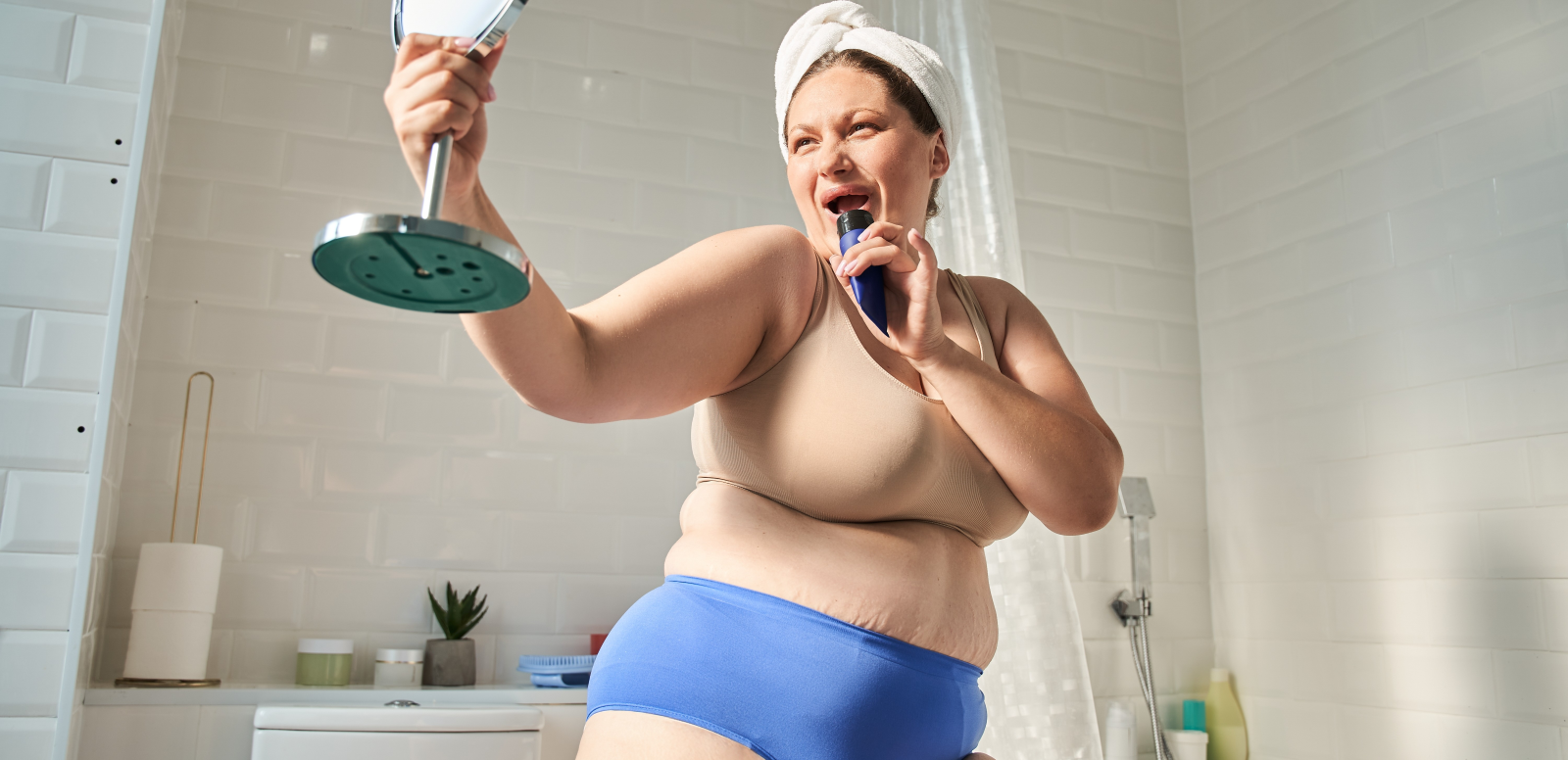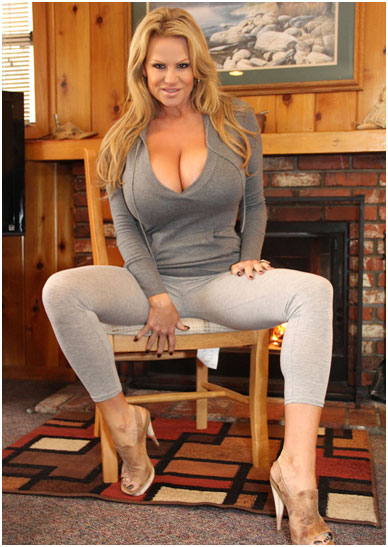Making a Fat Relationship Work
In a Fat Relationship, Love Comes in All Sizes
In a fat relationship, there is no one-size-fits-all template. It may involve two fat partners, or just one. It might be between straight couples, lesbian lovers, gay partners, bisexual pairings, or any identity that fits. The variation doesn’t matter—the core always comes back to one thing: mutual love and real acceptance.
Fat isn’t a strict category. It doesn’t have a precise weight, shape, or limit. What makes someone “fat” is simply that their body exceeds the narrow limits of what mainstream society calls “normal.” And that idea of “normal” is the real problem—not the body itself.
The stigma surrounding fatness isn’t about health or attraction. It’s rooted in judgment. People project cruel assumptions onto fat bodies and the relationships they’re part of. They ask, “Why would anyone love a fat person?” or claim, “They’re just settling because they can’t do better.” That’s not truth—it’s bigotry disguised as opinion.
Fat-Phobic Stereotypes Have No Place in Real Love
Let’s be honest. People say awful things about fat relationships. I’ve heard it all—insults masked as observations, jokes rooted in cruelty, and smug remarks claiming that fat people should be grateful for any sexual attention. These views aren’t just ignorant. They’re dehumanizing.
Being in a fat relationship doesn’t mean anyone is settling. And it doesn’t mean someone is desperate or unwanted. These relationships, just like any others, are built on trust, respect, sexual chemistry, and affection. They thrive when partners uplift each other, challenge societal nonsense, and prioritize each other’s emotional and physical needs.
It’s no different from any other love story. And like any love story, there are shallow versions—people who fetishize, manipulate, or objectify. But they’re the exception, not the rule. You wouldn’t reduce every older-younger couple to gold-digging stereotypes, so don’t flatten fat love into something transactional or pitiful.
In a fat relationship, it’s not about settling. It’s about choosing someone who sees you, respects you, and desires you—no matter your size.

Don’t Make the Relationship All About Fat
Here’s one of the most common mistakes people make—especially if they’re into fat bodies or identify as chubby chasers. They fixate on the fat. They lead with it, they praise it constantly, and they make it the main topic of interest. That approach might sound flattering on the surface, but in reality, it often lands as fetishistic and objectifying.
A lot of fat people—especially mature individuals and women—struggle with claiming their sexual identity. They’ve been conditioned to believe they’re unworthy of desire or love. That conditioning runs deep. When someone expresses interest in them, but the only interest is in their fatness—not their personality, intellect, or humour—it can feel hollow and invasive.
If your attention feels like it’s only for their body type, not for who they are, it quickly crosses into creepy territory. It’s no different from people who fetishize race, disability, or other traits while ignoring the human behind them. That kind of behaviour is demeaning. It sends the message that you’re attracted to an idea—not a person.
In a fat relationship, attraction should be full-spectrum. Admire the curves, but respect the individual. Compliment the body, but connect with the mind and heart. When admiration becomes obsession, it stops being romantic and starts being a red flag.
In a Fat Relationship, Connection Must Come Before Fetish
Loving, admiring, and appreciating fat bodies is a beautiful thing. When someone embraces the curves, softness, and presence of a larger body with respect, it can be incredibly affirming. But even with the best intentions, attraction to fatness must never overshadow the person themselves.
If you’re in a fat relationship and identify as a chubby chaser, there’s something important to keep in mind. If your partner starts to feel like you’re more into their fat than into them, it can damage the trust between you. It shifts the dynamic from loving to transactional. From mutual desire to objectification.
Your partner may begin to feel like a prop in your fantasy, rather than a human you adore.
It’s Not Just Any Fat Belly—It’s Their Fat Belly
Desire becomes personal when you focus on the individual. If you love your partner’s belly, make it clear that it’s not just the concept of “a fat belly” that excites you—it’s their belly. The one that rests on you when you cuddle. The one you hold during sex. The one that jiggles when they laugh.
This distinction matters more than most people realize. It takes admiration from generic to deeply personal. And it reassures your partner that you’re not just attracted to a body type—you’re attracted to them as a whole person.
In a fat relationship, that kind of reassurance is gold. It strengthens intimacy and helps fat partners feel seen, not fetishized.
If You Love the Person but Struggle With the Body
Let’s flip the scenario. Maybe you’re in love with someone—completely in awe of their personality, energy, humor, or values—but you’re not sure how to feel about their body. That’s a real situation. It’s valid. Attraction is complex, and we’re not robots.
But it’s also delicate. If not handled with care, that uncertainty can do damage.
Rather than avoiding your partner’s body or becoming distant, lean into touch. Explore their shape with your hands, your lips, your breath. You might find that sensuality grows through intimacy, not just visual preference. Learning to love someone’s body through physical connection is often more honest and lasting than chasing an ideal.
Don’t deny yourself the chance to discover new kinds of beauty. In a fat relationship, attraction often expands over time when you allow yourself to be present, curious, and open.
Some Things Will Work. Others Won’t. That’s Okay.
Bodies are all different. Some people are limber, others have the flexibility of a garden rake. That doesn’t make them any less desirable. If you’re trying to pull off some kind of human pretzel move and your partner’s hips are saying no—listen.
Not every position works for every body. But that’s not failure. It’s just reality. You wouldn’t expect a steel dildo to bend like rubber, and yet many people love steel toys for exactly what they are—solid, unyielding, dependable.
You can love someone who isn’t flexible and still have mind-blowing sex. It’s about working with what you have, not forcing a fantasy that doesn’t match your bodies.
Communication Comes Before Contortion
If you’re experimenting with a new position or idea, ask your partner how it feels. Don’t just guess. Don’t assume silence means comfort. Ask. Laugh. Adjust.
Being in a fat relationship means you’ll sometimes need extra tools or gear. Furniture, wedges, harnesses, or supports can make a huge difference. But never buy these items unilaterally. Talk first. Decide together. Sexual exploration should be mutual—not dictated.
Whether you’re shopping for bondage furniture or simply trying new angles, communication has to lead. A comfortable, collaborative experience beats acrobatics every time.
In a Fat Relationship, Shared Knowledge Builds Strength
When you’re facing challenges in a fat relationship—whether physical, emotional, or sexual—it’s easy to feel like you’re the only ones navigating that path. But you’re not. There are entire communities, blogs, and resources dedicated to fat love, fat sex, and relationship success.
Bringing outside voices into the conversation can be empowering. Reading about how other people manage similar challenges not only helps you feel less alone—it can give you new tools, approaches, and perspectives.
You might come across a blog post about sexual positions that work well for larger bodies, or a forum thread where someone’s tackled the exact same issue you’re struggling with. Maybe it’s about mobility. Maybe it’s about confidence. Whatever it is, someone else has been there.
In a fat relationship, outside guidance can reinforce internal trust. You don’t need to figure everything out on your own.
Trial and Error Is How You Learn
It’s important to remember that failure is part of the process. Not every new position, toy, or emotional conversation will land perfectly the first time. That doesn’t mean something’s wrong. It means you’re growing.
Trying something new and realizing it doesn’t work isn’t a failure. It’s progress. It gives you valuable feedback—what feels good, what doesn’t, what needs tweaking, or maybe skipping altogether. If you never stumble, you never learn.
In sex, in relationships, and in life, nothing works flawlessly every time. That’s especially true when you’re working with different bodies, comfort levels, and emotional histories.
But in a fat relationship grounded in care, you have something more valuable than perfection: partnership. And when you move through these moments together—with love, humor, and patience—you build deeper intimacy every time.
Be Mindful of Your Partner’s Comfort Zones
Growth in a relationship sometimes comes from pushing boundaries—but that doesn’t mean stomping over them. There’s a difference between curiosity and coercion. And in a fat relationship, where body image sensitivities may run deeper, that difference matters more than ever.
If your partner has expressed discomfort with something—whether it’s a specific position, a part of their body, or a type of touch—listen and respect it. Maybe they hate having their thighs squeezed, or they shy away from showing their belly. That boundary might not be permanent, but it deserves respect in the moment.
Nudge, Don’t Push
Over time, comfort zones can shift. That’s where gentle nudging, not force, plays a role. If your partner is open to exploring something they’ve been hesitant about, take your time. Keep communication open. Pay attention to their reactions. One small positive experience can start to break down years of insecurity.
But never confuse encouragement with pressure. If someone isn’t ready, you wait. That’s how trust is built.
In a fat relationship, safety and consent aren’t optional—they’re the foundation.
Love the Parts They Offer You
On the flip side, if your partner expresses a desire to be kissed, touched, or praised in a specific way, lean into it. Embrace it fully. If they ask you to kiss their belly, then kiss it like it’s the most beautiful part of them. Because in that moment—it is.
That kind of attention builds security. It tells your partner, “I see you, I want you, and I care how you feel.” During sex—one of the most exposed and vulnerable moments of the day—that matters more than anything else.
In a fat relationship, respecting each other’s bodies isn’t just nice—it’s essential. The way you treat your partner’s body is a direct reflection of how much you care. So treat it with curiosity, kindness, and love.
In A Fat Relationship
What are the most common misconceptions in a fat relationship?
One of the biggest misconceptions is that a fat relationship is based on settling. People assume the thinner partner is compromising, or that the fat partner is just “lucky” to be loved. These ideas are rooted in fatphobia, not reality. In truth, fat relationships function like any other—they’re built on attraction, connection, and mutual respect, not pity or desperation.
How can body confidence be improved in a fat relationship?
Confidence comes from acceptance—not just self-acceptance, but also from how your partner treats your body. Positive touch, sincere compliments, and communication go a long way. You also need time alone to reconnect with your body. Walk around naked, experiment with lingerie, and build comfort in your own skin. Confidence doesn’t show up all at once—it grows with experience and trust.
How should physical limitations be handled during sex?
Fat bodies may need different supports, surfaces, or positions to enjoy sex comfortably. That’s not a flaw—it’s just part of working with your unique bodies. Talk openly about what feels good and what doesn’t. Use pillows, wedges, or furniture to support your weight and angles. Focus on pleasure, not performance. Adaptation is normal and can actually improve your sex life.
Is it okay to have insecurities in a fat relationship?
Yes, insecurities are normal in any relationship. Being in a fat relationship doesn’t mean you’re immune to doubt or anxiety. What matters is how you deal with it. Talk about it. Acknowledge your feelings without letting them take over. Your partner can’t read your mind, but they can reassure you—if you let them. Honesty opens space for connection and support.
What’s the best way to support a fat partner emotionally?
Support starts by treating your partner like a whole person, not just a body type. That means listening without judgment, checking in regularly, and showing physical affection without hesitation. Celebrate what they love about themselves. Don’t avoid conversations about body image—invite them. In a fat relationship, emotional safety is just as important as physical attraction.






